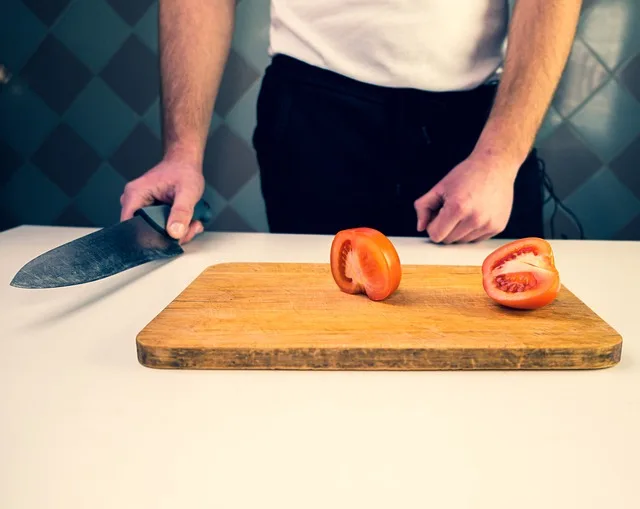First things first, gather your tools. You’ll need a drill, a level, a stud finder, and some screws. Think of these tools as your trusty sidekicks on this DIY adventure. Once you have everything ready, it’s time to measure your space. Measure the height and width where you want your cabinets to go. This is like laying the foundation for a house; get it right, and everything else will fall into place.

Next, locate the studs in your wall using the stud finder. Why? Because you want your cabinets to be securely anchored, just like a ship needs a sturdy dock. Mark these spots lightly with a pencil. Now, it’s time to hang the cabinets. Start with the corner cabinet if you have one. Lift it into place and use your level to ensure it’s straight. No one wants a crooked cabinet, right? Secure it with screws into the studs.
Once the corner cabinet is up, it’s time to tackle the rest. Hang the other cabinets one by one, making sure to check for level each time. It’s like stacking blocks; if one is off, the whole tower can wobble! Don’t forget to use clamps to hold the cabinets together while you secure them.
Finally, add the finishing touches, like cabinet doors and handles. Stand back and admire your handiwork! You’ve just transformed your kitchen into a more organized and beautiful space. Who knew a little DIY could make such a big impact?
Step-by-Step Guide: Transform Your Kitchen with DIY Wall Cabinet Installation
First things first, gather your tools. You’ll need a stud finder, level, drill, screws, and of course, your fabulous wall cabinets. Think of your stud finder as your treasure map—it’ll help you locate the sturdy beams in your wall where you’ll anchor those cabinets. Once you’ve found your studs, mark their locations with a pencil.
Next, it’s time to measure and mark where your cabinets will go. Picture this: you’re an artist, and your kitchen wall is your canvas. Use a level to ensure your marks are straight; nobody wants a crooked cabinet that looks like it’s about to tumble down!
Now, let’s get those cabinets up! Start with the upper cabinets. It’s like lifting weights—get a friend to help you hold them in place while you drill. Secure them into the studs, and don’t forget to double-check that everything is level.
Once the upper cabinets are in place, it’s time for the lower ones. This is where the magic happens! You can finally say goodbye to that cluttered countertop. Install them just like the upper ones, ensuring they’re aligned perfectly.
Elevate Your Space: Expert Tips for Installing Wall Cabinets Like a Pro
First off, planning is key. Before you even think about picking up a drill, take a moment to measure your space. Grab a tape measure and jot down the dimensions. Think of it like sketching a blueprint for a masterpiece. You wouldn’t start painting without knowing your canvas, would you?
Next, choose the right cabinets. Whether you’re going for sleek modern designs or rustic charm, make sure they fit your style and needs. It’s like picking the perfect outfit; you want something that not only looks good but also feels right for the occasion.
Now, let’s talk about installation. Start by marking where your cabinets will go. Use a level to ensure everything is straight—nobody wants a crooked cabinet that looks like it’s about to tumble down! Think of it as laying the foundation for a sturdy house; everything needs to be aligned for the best results.
When it’s time to hang those cabinets, don’t rush. Secure them properly to the wall studs. It’s like anchoring a ship; you want it to stay put, no matter the storm. And remember, patience is your best friend here.
Finally, add those finishing touches. Whether it’s stylish handles or a fresh coat of paint, these details can elevate your cabinets from ordinary to extraordinary. So, are you ready to roll up your sleeves and create a space that wows? Let’s get started!
From Blueprint to Reality: Mastering the Art of Wall Cabinet Installation

First off, let’s talk about preparation. Just like a chef preps their ingredients before cooking, you need to gather your tools and materials. A level, drill, screws, and a stud finder are your best friends here. Picture yourself as an artist, ready to create a masterpiece. You wouldn’t start painting without your brushes, right?
Next, it’s all about measuring. You wouldn’t want to hang a beautiful painting crooked, so why would you do the same with your cabinets? Measure twice, install once! Find the studs in your wall; they’re the sturdy backbone that will support your cabinets. Think of them as the foundation of a house—without them, everything could come crashing down.
Now, let’s get to the fun part: hanging those cabinets! Start with the upper cabinets, as they’re the trickiest. It’s like lifting weights; you want to start with the heavy stuff first. Use your level to ensure they’re straight, and secure them tightly. It’s all about that satisfying click when everything fits perfectly into place.
As you step back to admire your handiwork, you’ll feel a rush of pride. You’ve transformed a simple blueprint into a functional, stylish reality. Wall cabinet installation isn’t just about storage; it’s about creating a space that reflects who you are. So roll up your sleeves, channel your inner DIY guru, and let’s make that vision come alive!
The Ultimate Kitchen Upgrade: How to Install Wall Cabinets with Ease
First things first, gather your tools. You’ll need a level, a drill, and some screws—think of them as your trusty sidekicks on this DIY adventure. Before you dive in, take a moment to plan your layout. Where do you want those cabinets? Visualize how they’ll fit into your kitchen’s flow. It’s like playing Tetris, but with a much tastier reward at the end!
Next, it’s time to measure. Measure twice, cut once—ever heard that saying? It’s golden! Mark where your cabinets will hang, ensuring they’re level. No one wants a crooked cabinet that looks like it’s had one too many drinks! Once you’ve got your marks, it’s time to drill. Secure those cabinets to the wall, and watch as your kitchen starts to transform before your eyes.
Now, let’s talk about the fun part: styling! Once your cabinets are up, it’s like a blank canvas waiting for your personal touch. Add some decorative dishes, a few potted herbs, or even a splash of color with some funky cabinet knobs. It’s all about making that space feel like home.
Wall Cabinets 101: Essential Tools and Techniques for a Flawless Installation
First off, let’s talk tools. A stud finder is your best friend here. It’s like having a treasure map that leads you to the hidden gems in your walls—those sturdy studs that will support your cabinets. Next, grab a level. You want your cabinets to hang straight, not like a crooked picture frame that makes you cringe every time you walk by. A tape measure is also essential; it’s your guide to ensuring everything fits perfectly, like a puzzle piece snapping into place.
Now, onto techniques. Start by marking where your cabinets will go. This is your blueprint, so take your time! Use a pencil to sketch out the outline on the wall. When it comes to lifting those cabinets, don’t go solo. It’s a two-person job—think of it as a dance, where one leads and the other supports. Secure the cabinets to the wall using screws, making sure to hit those studs for maximum stability.
And here’s a pro tip: always check your work as you go. It’s like tasting your dish while cooking; you want to make sure everything is just right. If something feels off, don’t hesitate to adjust.
With these tools and techniques in your arsenal, you’re well on your way to a flawless wall cabinet installation. Just remember, every expert was once a beginner, so embrace the process and enjoy the transformation!
Frequently Asked Questions
What is the Best Height for Wall Cabinets?
The ideal height for wall cabinets typically ranges from 54 to 60 inches above the floor, allowing for comfortable access and maximizing storage space. This height accommodates standard countertop heights and provides sufficient clearance for most users.
What Are Common Mistakes to Avoid When Installing Wall Cabinets?
When installing wall cabinets, avoid common mistakes such as not measuring accurately, failing to locate studs for secure mounting, neglecting to level the cabinets, and overlooking the importance of proper spacing. Ensure you use the right tools and hardware, and double-check your plans to prevent misalignment and instability.
What Tools Do I Need to Install Wall Cabinets?
To install wall cabinets, you will need a stud finder to locate wall studs, a level to ensure cabinets are straight, a drill for making holes, screws for securing the cabinets, a measuring tape for accurate placement, and a screwdriver for assembly. Additionally, a pencil for marking and a safety gear like goggles may be helpful.
How Do I Securely Mount Wall Cabinets?
To securely mount wall cabinets, start by locating the wall studs using a stud finder. Use heavy-duty screws to attach the cabinet directly to the studs for maximum stability. Ensure the cabinet is level before securing it fully. For added support, consider using brackets or a mounting rail. Always follow the manufacturer’s instructions for weight limits and installation guidelines.
How Do I Measure for Wall Cabinet Installation?
To measure for wall cabinet installation, start by determining the desired height and width of the cabinets. Use a tape measure to find the distance from the floor to the bottom of the cabinet, ensuring it is at a comfortable height for access. Measure the wall space where the cabinets will be installed, accounting for any obstacles like outlets or windows. Mark the measurements on the wall with a pencil, and double-check for level and plumb to ensure proper installation.